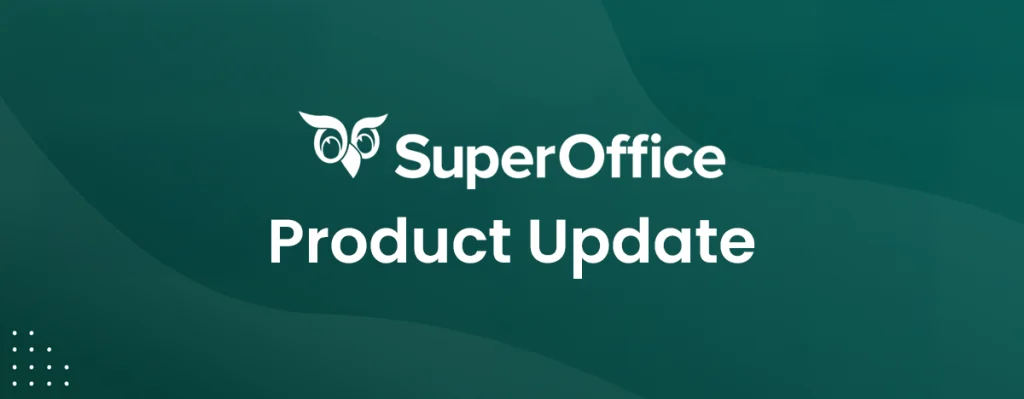Small and medium-sized enterprises (SMEs) play a vital role in the UK economy, accounting for over 99% of all businesses (Source: forbes.com). However, operating a small or medium sized business comes with its fair share of challenges. From managing customer relationships, to tracking sales and marketing efforts, staying organised and efficient can be overwhelming. This is where Customer Relationship Management (CRM) software comes in. A CRM system can revolutionise the way you run your business, helping you streamline operations, save time, and focus on growth.
In this blog post, we’ll explore how CRM software can help SMEs improve efficiency, enhance customer satisfaction, and ultimately boost profitability.
What is CRM Software?
CRM software is a tool designed to help businesses manage their interactions with customers, leads, and prospects. At its core, it’s a centralised system that stores customer data, tracks interactions, and facilitates communication. Modern CRM platforms often come with additional features like sales pipeline management, marketing automation, and analytics, making them a comprehensive solution for businesses of all sizes.
For SMEs, a CRM system can be particularly beneficial, as it allows you to manage multiple aspects of your business from a single platform.
Key Benefits of CRM Software for SMEs
1. Centralised Customer Data
One of the biggest advantages of using CRM software is the ability to centralise customer information. Instead of storing data in multiple spreadsheets, email threads, or handwritten notes, a CRM system keeps everything in one place. This makes it easier to:
- Access customer contact details.
- Track past interactions and purchase history.
- Identify customer preferences and behaviours.
With all this information readily available, your team can provide more personalised and efficient service.
2. Improved Communication and Collaboration
For SMEs with small teams, effective communication is crucial. A CRM system ensures that everyone is on the same page by providing a shared platform where team members can access real-time updates. For example:
- Sales teams can see where a lead is in the pipeline.
- Customer service agents can review past interactions before responding to queries.
- Managers can assign tasks and track progress.
This level of transparency reduces misunderstandings, improves collaboration, and enhances overall productivity.
3. Streamlined Sales Processes
Managing the sales pipeline can be challenging, especially for growing SMEs. CRM software simplifies this process by providing tools to:
- Track leads and opportunities.
- Automate follow-ups with prospects.
- Monitor sales performance through dashboards and reports.
With a clear view of your sales pipeline, you can identify bottlenecks, prioritise high-value leads, and close deals more effectively.
4. Enhanced Marketing Efficiency
Marketing is essential for any business, but it can be time-consuming and resource-intensive. CRM systems often include marketing automation features, such as:
- Email campaign management.
- Segmentation of customer lists.
- Tracking the success of campaigns through analytics.
By automating repetitive tasks, you can free up time to focus on crafting creative and impactful marketing strategies. Additionally, detailed analytics allow you to refine your campaigns for better results.
5. Better Customer Service
Customer satisfaction is key to the success of any SME. A CRM system enables you to provide exceptional service by:
- Logging and tracking customer inquiries.
- Setting reminders for follow-ups.
- Offering self-service options, such as knowledge bases or chatbots.
When customers feel valued and supported, they are more likely to remain loyal and recommend your business to others. Some CRM systems such as SuperOffice CRM, even have dedicated customer service modules built in.
6. Scalability
As your business grows, so do your operational needs. CRM software is designed to scale with you, allowing you to add new users, integrate additional tools, and manage larger volumes of data. This flexibility ensures that your CRM system remains an asset, even as your business evolves.
Real-World Applications of CRM Software
To illustrate how CRM systems can make a difference, let’s look at a few real word examples from Synergy Technology customers:
Example 1: A leading supplier of sail hardware, fittings, sailcloth, and fabrics.
Synergy Technology implemented SuperOffice CRM for Contender UK, enhancing their customer relationship management and internal communication. The CRM system simplified operations, requiring minimal training and providing valuable insights. It helped manage customer contacts, track activities, and schedule resources for their C360 cutting service. The built-in marketing module allowed for effective promotional campaigns. Overall, the CRM system improved efficiency and supported Contender UK’s growth. Read more here: Contender UK.
Example 2: A Specialist software escrow and business continuity provider.
Synergy Technology helped SES streamline their operations by implementing a secure SuperOffice CRM system. This solution enhanced data security, improved customer relationship management, and facilitated better communication within the team. The CRM system also provided SES with valuable insights through advanced reporting and analytics, leading to more informed decision-making and increased efficiency. Overall, the project resulted in a more organized and productive workflow for SES. Read more here: SES Secure Ltd.
Example 3: An independent supplier of managed print services
Synergy Technology migrated Document Network Services’ Microsoft Dynamics 365 CRM to the cloud, enhancing remote working, reducing server management costs, and improving system performance. The transition was seamless, with minimal downtime and all data accurately transferred. The cloud-based CRM now provides full access to client data, activities, and contracts, improving efficiency and communication. The integration with Power BI offers valuable insights and reporting capabilities, supporting business objectives and growth. Read more here: Document Network Services.
Example 4: The market-leader for sign-in and visitor management solutions
Synergy Technology helped InVentry Ltd, a leader in visitor management systems, streamline their sales processes using Microsoft Dynamics 365 Sales. This CRM system improved visibility, efficiency, and integration with other Microsoft products. It enabled better management of sales pipelines and customer relationships. The support from Synergy Technology ensured seamless operation and valuable insights, enhancing InVentry’s growth in both education and corporate sectors. Read More here: InVentry Ltd.
Choosing the Right CRM for Your Business
With so many CRM options available, selecting the right one for your SME can be daunting. Here are some factors to consider:
Ease of Use
Look for a system that is intuitive and easy to navigate. A complicated interface can discourage team members from using it effectively.
Customisation
Your business is unique, so choose a CRM that allows you to customise fields, workflows, and reports to suit your specific needs.
Integration
Ensure that the CRM integrates with your existing tools, such as email platforms, accounting software, and project management systems. Seamless integration reduces duplication of effort and enhances efficiency.
Scalability
Select a CRM that can grow with your business, accommodating new users and additional features as needed.
Cost
Consider your budget and look for a system that offers good value for money. Many CRM providers offer tiered pricing plans, allowing you to start small and upgrade as your needs evolve.
Implementing a CRM System
Introducing a CRM system to your business requires careful planning. Here are some steps to ensure a smooth implementation:
- Define Your Goals: Identify what you want to achieve with the CRM, such as improving customer service or increasing sales.
- Train Your Team: Provide training to ensure all team members understand how to use the system effectively.
- Migrate Data: Import existing customer data into the CRM, ensuring it is accurate and up to date.
- Monitor Usage: Regularly review how the CRM is being used and address any issues or challenges.
- Evaluate Performance: Use the CRM’s analytics tools to measure its impact on your business operations and make adjustments as needed.
How Synergy Technology Can Help
Implementing a CRM system can be a complex process, but with the right partner, it doesn’t have to be. Synergy Technology has over 25 years of experience helping small businesses in the UK adopt and optimise CRM systems. Unlike most CRM providers, we are not tied to one solution, so we can truly recommend the best solution for your needs and budget.
Our expert team can assist you with:
- Choosing the right CRM solution for your business needs.
- Customising the system to match your unique requirements.
- Providing training and ongoing support to ensure a smooth transition.
- Integrating the CRM with your existing tools and processes.
By partnering with Synergy Technology, you can leverage our extensive experience to ensure your CRM implementation delivers maximum value and sets your business up for success.
Want more information about how CRM software can streamline business operations for your company? Speak with one of our CRM experts today, by calling 0345 456 0050 or send us a message through our contact page.
Follow us on social media:








